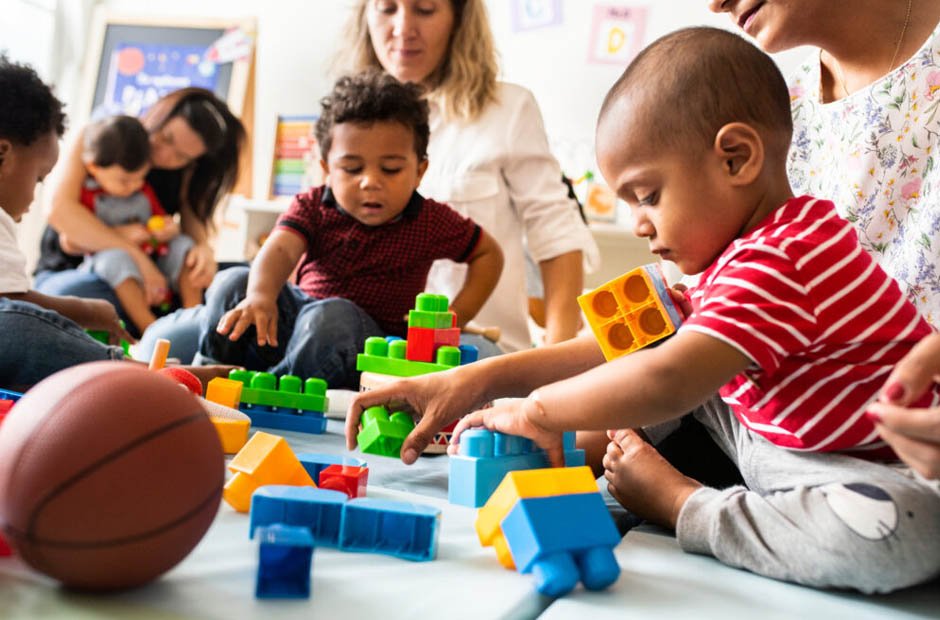Playtime is more than just fun and games—it’s a crucial component of development for young children. Through play, children explore the world, learn new skills, and develop cognitive, social, emotional, and physical abilities. This essential activity is the first classroom in which children begin to understand the complexities of the world around them. In this article, we will delve into the diverse ways through which young children develop by engaging in various play activities, highlighting the fundamental role of play in the journey of early childhood development.
The Power of Play in Early Education
The concept of play as a method of learning might seem simple, yet it is profoundly significant in early childhood education. Within environments dedicated to early learning, such as those in Chatswood, play is strategically used to guide children through their developmental milestones. These play-based approaches are tailored to nurture curiosity, motor skills, and social competencies in a supportive and engaging manner. Early learning Chatswood emphasize this holistic development, ensuring that each child receives the benefits of learning through play in a structured, yet flexible environment.
From toddlers to preschoolers, children at different stages of early childhood engage in various types of play, each serving a unique purpose in their developmental journey. As children grow, the nature of play evolves, offering them new challenges and opportunities to learn.
Cognitive Development Through Play
One of the most critical areas where play has a profound impact is cognitive development. Through play, children learn to think, remember, and solve problems. Simple activities like stacking blocks or assembling a puzzle involve skills such as recognizing shapes, understanding spatial relationships, and applying logic. These activities are the building blocks of abstract thinking and reasoning skills.
Moreover, imaginative play, such as pretending to be a doctor or building a spaceship from a box, promotes creativity and innovation. These activities allow children to experiment with different scenarios and outcomes, fostering flexible thinking and problem-solving skills. Through such play, children also begin to understand the concept of symbols, preparing them for academic skills like reading and math.
Social and Emotional Growth
Play is equally important for social and emotional development. When children play with others, they learn valuable social skills such as sharing, negotiation, and cooperation. Play scenarios often involve conflicts and resolutions, offering children a safe space to practice emotional regulation and empathy.
Emotionally, play allows children to express themselves and their feelings in a controlled environment. Whether it’s through a puppet show or a game of house, children explore different roles and perspectives, gaining insights into their own and others’ emotions. This exploration is vital for building self-awareness and empathy, which are crucial for personal and interpersonal development.
Physical Development Through Active Play
Physical play, including running, jumping, and climbing, is crucial for developing motor skills and overall health. These activities help children improve their strength, coordination, and agility. They also teach children about their bodies’ capabilities and limits, encouraging them to take calculated risks and challenge themselves.
Moreover, active play is beneficial for children’s health as it promotes exercise and can instill a preference for active habits later in life. It’s also been shown to correlate with better mental health, as physical activity can reduce stress and anxiety in children, just as it does in adults.
Language Skills Through Play
Play also plays a vital role in the development of language skills. As children interact with their peers and adults, they learn to communicate effectively, articulate their thoughts, and understand others. Even solitary play often involves vocalization and dialogue, which helps in language acquisition and fluency.
For instance, when a group of children plays a game involving rules, they must listen and communicate to participate effectively. This interaction enhances their vocabulary and language structure understanding, crucial for effective communication.
The Role of Adults in Play
While play is often child-led, adults have a vital role in facilitating and guiding play. Parents, teachers, and caregivers can enhance play experiences by providing diverse and appropriate play materials, setting up stimulating environments, and sometimes participating in the play themselves. By asking open-ended questions, adults can encourage deeper thinking and exploration during play.
Moreover, adults must ensure that play remains safe and inclusive, giving each child the opportunity to participate and benefit from the activities. Observing play can also provide insights into a child’s development and help adults better support their learning and growth.
Final Thoughts
To summarise, play is not just a way for children to pass the time; it is a fundamental part of how they learn and grow. Through various types of play, children develop cognitive, social, emotional, and physical skills that are crucial for their overall development. Early learning environments, like those found in Chatswood, recognize the importance of play in early childhood education and harness its power to foster holistic growth in young learners. As such, ensuring that children have ample and diverse opportunities to play is essential for helping them become capable, creative, and resilient individuals. By understanding and supporting the various dimensions of play, we can provide our tiny thinkers with the tools they need to explore, learn, and thrive in a complex world.







